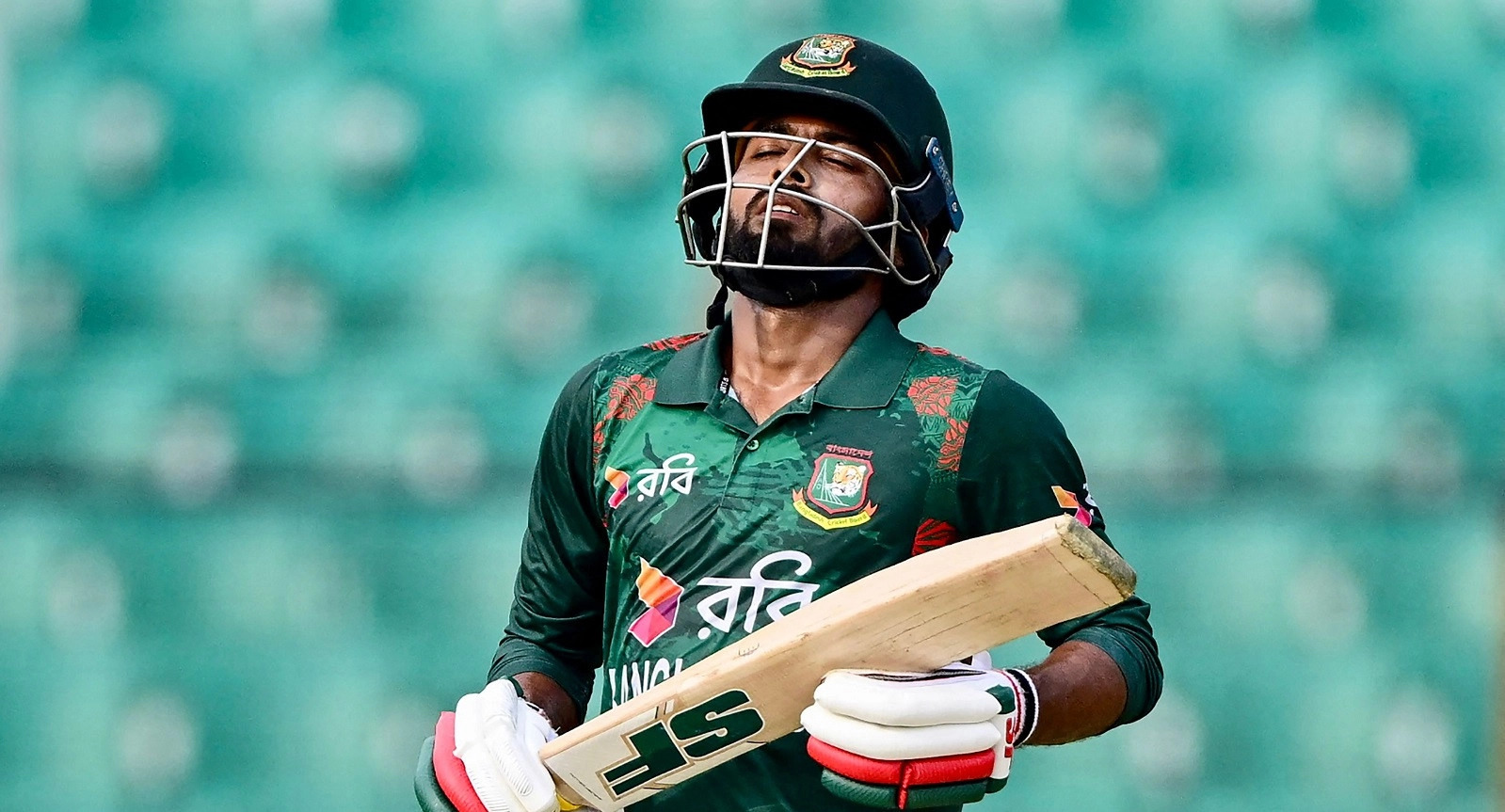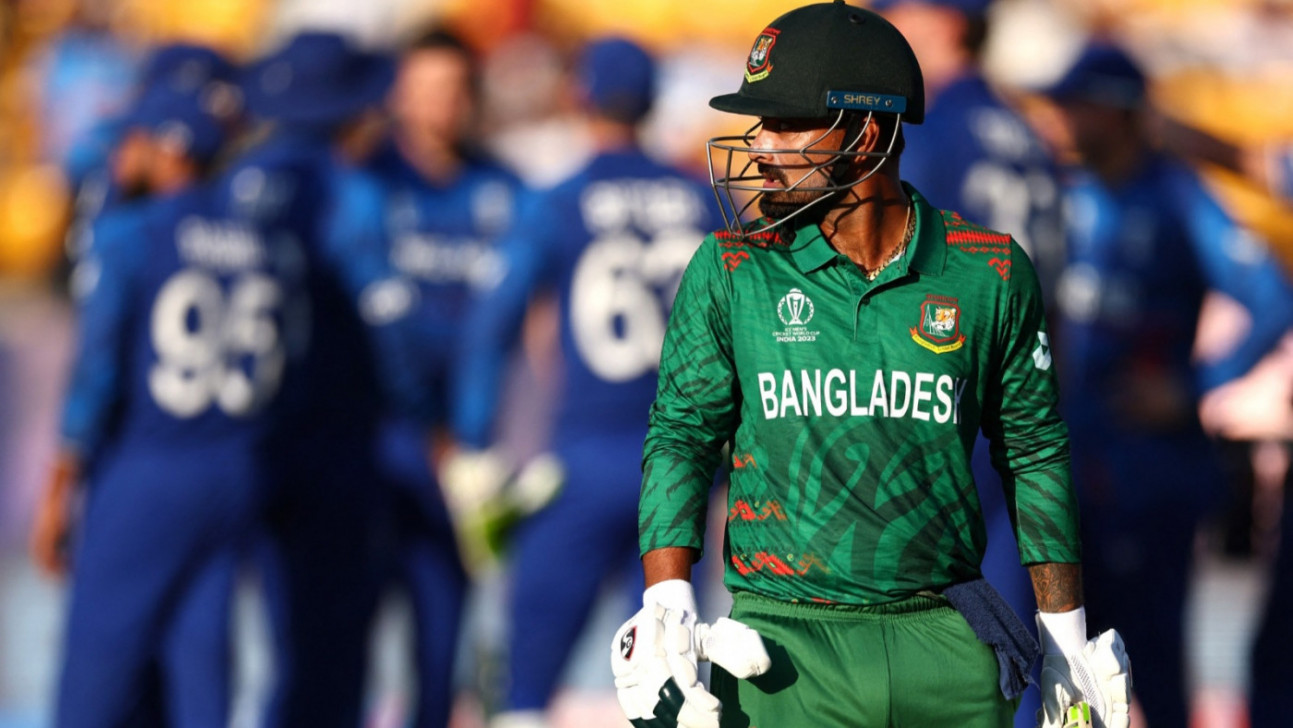How to break the curse of losing heartbreaking matches

Bangladesh is a seasoned customer of heartbreaking finishes. As a Bangladeshi fan, all that could have gone in our favour naturally becomes glaringly obvious and sharpens the pain of losses in tight matches, such as the one against South Africa. Bangladesh lost the match by four runs—runs that were denied to the team due to a faulty decision by the on-field umpire. As the umpire raised his finger to Mahmudullah's dismay, the ball raced behind him to the boundary. He immediately reviewed the decision and successfully overturned it, but because of a rule of the game, the ball was deemed a dead ball and those four runs ultimately became the margin by which Bangladesh lost the game. That fact is salt to the wound for Bangladeshis as much as it is a consolation prize. Fans can look to moments like this to convince themselves that we nearly did it and lost it for something that was out of our control.
Sidharth Monga's insightful match analysis of the game, "The Bangladesh-SA thriller that you think you saw, but TV didn't fully show" on ESPNcricinfo sheds more light on the uncontrollable factors that did not go in Bangladesh's favour. He talked about the three full tosses that Maharaj bowled in the last over—deliveries that arguably should have helped Bangladesh score the required 10 runs. With Mahmudullah on strike and six to defend from two balls, Maharaj attempted to bowl a yorker. It was wind of all things that made the difference. It picked up just then behind Maharaj and turned the ball into a full toss instead of the attempted yorker. This became the batter's advantage and Mahmudullah was perfectly placed to finish the match with one winning shot. But as Monga says, "What made Maharaj miss his execution also helped him." The same wind resisted the trajectory of Mahmudullah's shot, holding it just long enough in the air to not clear the boundary. The knife in the wound twists.
The only solution for Bangladesh to escape what feels like the curse of losing heartbreaking and close matches is to be so good that these factors no longer make a difference. I cannot say with certainty, but I am sure that other teams like ours who are often nearly there but not quite enough find a plethora of examples where if only things were slightly different, they would emerge victorious. The goal has to be to become a team that displays indomitable spirit and is so capable that they are largely always in control of the game. I doubt that achieving this high standard of cricket exempts a team from facing the short end of the stick in times of uncertainty. It's just that the team's performance would then be so strong that small factors no longer have much sway in defining the outcome of the game.
When it comes to factors within the team's control, the batters' weakness against the short ball stands out. Both Shanto and Shakib got out to similar deliveries in the same fashion where they did not seem to have any idea of how to execute a shot against a short ball. The two players' years of experience vary greatly, and yet they seemed to have the same approach. This can be an example of the fact that when problems emerge in the team—which is only fair and expected—it is allowed to persist instead of being addressed with a strategy in place to overcome the weakness.
The Bangladeshi bowlers maintained excellent discipline throughout the first innings. They made the most of the early breakthroughs and did not falter in line and length even when the partnership grew after the fourth wicket. They pulled it back nicely towards the end of the innings with Mustafiz bowling a stunning last over that gave away only four runs. The bowlers seem to be in much more harmony with each other than the batters of the team. The bowlers' performance is that of a cohesive unit where if one has a bad over, they do not let the momentum get away from them. The captaincy was also commendable in terms of backing players who bowl expensive overs such as Rishad, who came back after bowling three overs for 28 runs to get the wicket of David Miller.
Bangladesh is experienced in playing and winning low-scoring T20 matches, but sadly the support of the batters is sorely missed. Surely, there cannot be an easier target to chase in a T20 match than 114. As always, Mahmudullah Riyad continues to be the most dependable asset of the team and has perhaps been its true leader without ever donning any feathers.
Madiha Athar Khan is a columnist for The Daily Star and a technical writer at Optimizely. She also leads the Art for Soul movement. She can be reached at madihak1923@gmail.com
Views expressed in this article are the author's own.
Follow The Daily Star Opinion on Facebook for the latest opinions, commentaries and analyses by experts and professionals. To contribute your article or letter to The Daily Star Opinion, see our guidelines for submission.




 For all latest news, follow The Daily Star's Google News channel.
For all latest news, follow The Daily Star's Google News channel. 

Comments